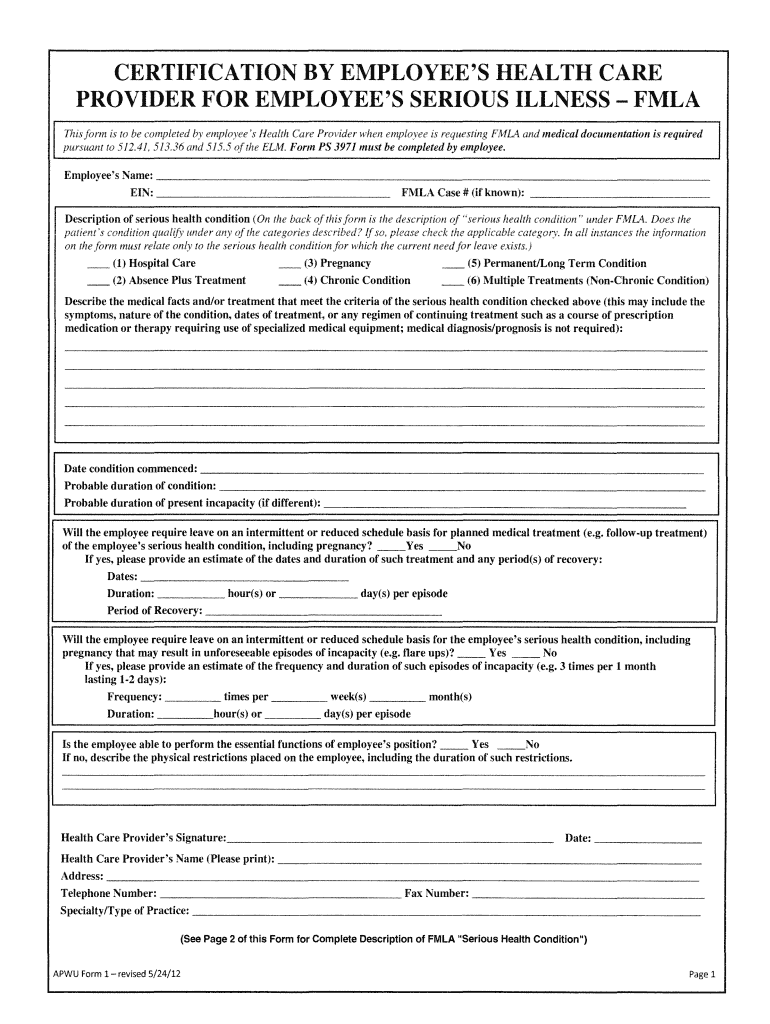When to Submit FMLA Paperwork for Maternity Leave

In the intricate dance of preparing for maternity leave, submitting your FMLA (Family and Medical Leave Act) paperwork is a critical step that requires careful planning and timing. Understanding when to file this documentation ensures that your leave is seamlessly integrated with your employer's policies and the provisions of the law, guaranteeing a stress-free transition as you welcome your new family member.
Understanding the FMLA for Maternity Leave

The FMLA allows eligible employees up to 12 weeks of unpaid, job-protected leave within a 12-month period for various family and medical reasons, including childbirth or care for a newborn. Key elements of the FMLA include:
- Eligibility: Employees must have worked for their employer for at least 12 months and have at least 1,250 hours of service during the 12 months immediately preceding the leave.
- Job protection: While on FMLA leave, your job (or an equivalent position) is guaranteed upon return.
- Health insurance: Employers must maintain the employee's health insurance coverage as if the employee had continued to work.

When Should You Submit Your FMLA Paperwork?

While there isn't a strict deadline set by the FMLA for when to submit paperwork, timing is crucial:
- Early Planning: Plan to submit your request at least 30 days in advance if your leave is foreseeable (which it typically is in case of childbirth).
- Upon Confirmation of Pregnancy: Once you have a confirmed due date, discuss your plans with your manager or HR department. This can happen around your second trimester or when you feel comfortable sharing the news.
- Timing Considerations:
- If you're expecting multiples, consider submitting earlier due to potential complications.
- If you have a high-risk pregnancy, informing your employer sooner might be necessary.
- In unexpected situations (like premature birth or other health concerns), you can provide notice as soon as practically possible.
Steps to Submit Your FMLA Paperwork

- Inform HR: Schedule a meeting or send an email to your HR department to inform them of your intent to take maternity leave.
- Request Forms: Obtain the necessary FMLA forms. This might include:
- WH-380-E - Certification of Health Care Provider for Employee's Serious Health Condition
- WH-380-F - Certification of Health Care Provider for Family Member's Serious Health Condition
- Complete Forms: Fill out your part of the form, and have your healthcare provider complete their section to certify your need for leave.
- Submission: Submit the forms well before your leave starts. Ensure you:
- Keep copies for your records.
- Know when the HR department's deadlines are for processing the paperwork.
Things to Keep in Mind

📝 Note: Timing your submission can affect how your employer handles your leave. Late submissions might not allow your employer to fully prepare for your absence.
- Company Policies: Review your company's maternity leave policy. Some might have specific windows for when to apply for FMLA.
- Leave Coordination: If you're planning to use paid time off (PTO) or short-term disability in conjunction with FMLA, coordinate these benefits carefully with HR.
- Documentation: Keep a clear record of all communications regarding your leave, including dates of submission, copies of forms, and responses from HR.
What to Expect After Submission

Once you submit your FMLA paperwork:
- Your employer will review it to determine if you are eligible for FMLA leave.
- You'll receive a notice of your FMLA rights and responsibilities from your employer, detailing how much leave you're entitled to, the period it covers, and what you need to provide.
- Your leave may be approved, or you might be asked for additional information or clarification.
Final Thoughts

The transition into maternity leave is not just a legal or administrative process but also an emotional journey. Understanding when to submit your FMLA paperwork is key to a smooth preparation for welcoming your child. Planning early, coordinating with HR, and staying organized will ensure that your focus remains on the joy of starting a new chapter in your life rather than administrative hurdles.
Can I Submit FMLA Paperwork Late?

+
While it’s recommended to submit FMLA paperwork 30 days in advance if possible, there are provisions for unforeseen events. If your leave is unexpected, you should notify your employer as soon as you can, and they are required to accept late submissions under certain circumstances.
What if My Company Has a Different Maternity Leave Policy?

+
FMLA sets the minimum requirements, but companies can offer more generous policies. Review your employer’s policy to understand how FMLA leave might integrate with or differ from what your company provides.
What if I Have More Questions About FMLA?

+
For more specific inquiries, reach out to your HR department. They can provide detailed information tailored to your company’s policies and your individual situation. If you need further legal advice, consider consulting with an employment lawyer.



